Landmark Cases in the Law of Contract
A couple went to England on leave. For health reasons, the wife was unable to accompany the husband again to Ceylon. The husband promised to pay 30 pounds per month to his wife as maintenance, but he failed to pay. The husband was held not liable, as there was no intention to create a legal relationship. The court observed that arrangements between husband and wife usually do not result in contracts, even though there may be what would constitute consideration for the agreement.
Where the agreement clearly provides that it was not a legal agreement, the same would be unenforceable. In this case, the agreement provided that: "This arrangement is not entered into.... as a formal or legal agreement and shall not be subject to legal jurisdiction in the Law Courts... that it will be carried through by the parties with mutual loyalty and friendly co-operation." One of the parties had made a breach of this agreement.
In this case, X purchased a horse from Y and promised to buy another if the first one proved lucky. It was held that X’s promise is not enforceable as it is vague.
This case is an illustration of a contract arising out of a general offer. A company offered by advertisement to pay £100 to anyone "who contracts the increasing epidemic influenza, colds or any disease caused by taking cold, after having used the ball according to printed directions." It was added that "£1,000 is deposited with the Alliance Bank showing our sincerity in the matter." The plaintiff used the smoke balls according to the directions but nevertheless subsequently suffered from influenza. She was held entitled to recover the promised reward.
The defendant's nephew absconded from home. The plaintiff, who was the defendant's servant, was sent to search for the missing boy. After the plaintiff had left in search of the boy, the defendant issued handbills announcing a reward of Rs. 501 to anyone who might find the boy. The plaintiff came to know of this offer only after he had already traced and informed the defendant about the boy. The plaintiff brought an action to claim his reward. Held that since the plaintiff was ignorant of the offer of reward, his act of bringing the lost boy did not amount to the acceptance of the offer, and, therefore, he was not entitled to claim the reward.
In this case, the plaintiffs made an offer (on phone) from Ahmedabad to the defendants at Khamgaon to purchase certain goods and the defendants accepted the offer. The question was whether the conversation resulted in a contract at Khamgaon or Ahmedabad? It was held that the contract was made at Ahmedabad where the acceptance was communicated. The contract, in case of acceptance by phone, is deemed to be complete when the offeror hears the acceptance at his end rather than when the acceptor speaks the words of acceptance.
In that case, the plaintiffs telegraphed to the defendants, writing: "Will you sell us Bumper Hall Pen? Telegraph lowest cash price". The defendants replied, also by a telegram: "Lowest price for Pen, £900". The plaintiffs immediately sent their last telegram stating: "We agree to buy Pen for £900 as asked by you". The defendants, however, refused to sell the plot of land at that price. The court observed that the defendants gave only the lowest price and did not express their willingness to sell. Thus, they had made no offer. The plaintiffs' last telegram was an offer to buy, but that was never accepted by the defendants.
In this case, Felthouse offered by a letter to buy his nephew’s horse for $30 saying, "If I hear no more about him, I shall consider the horse is mine." The nephew sent no reply at all but told his auctioneer not to sell that particular horse as he intended to sell it to his uncle. However, the horse was sold by mistake. Felthouse sued the auctioneer for conversion. It was held that Felthouse would not succeed as his nephew had not communicated acceptance and hence there was no contract.
In this case, a minor, by fraudulently concealing his age, contracted to sell a plot of land to the plaintiff. He received the consideration of Rs. 17,500 and then refused to perform his part of the deal. The plaintiff sued the defendant minor for delivery of possession or, alternatively, for recovery of the amount with interest. The defendant minor pleaded minority to avoid the contract. The issue was whether a minor could be made to repay. The court observed that the doctrine of restitution finds expression in Sec. 41 of the Specific Relief Act but does not explicitly disallow pecuniary compensation. However, the ruling emphasized that when a minor borrows money through a void transaction, they must refund the money received before reclaiming any property sold or mortgaged.
In this case, the court refused to follow the enlarged view of restitution made in the Khan Gul case. The courts in India felt bound by the principle of restitution as explained in the Leslie case, an English case. Where a contract of transfer of property is void, and such property can be traced, the property belongs to the promisor and can be followed. The court emphasized that there is no rule of equity, justice, and good conscience that entitles a court to enforce a void contract of a minor against him under the cloak of restitution. Chief Justice Sulaiman highlighted that minors cannot be held financially responsible for agreements that are invalid due to their age.
In this case, an infant hired a horse for a short ride but rode it for a long distance, resulting in injury to the horse. He was not held liable because it was a contractual obligation. The court ruled that a minor cannot be held liable in contract nor in tort arising out of a contract.
In this case, the father of Raj Rani, who was a minor, entered into a contract on her behalf with Prem Adib, a film producer. Raj Rani was supposed to act as a film actress on payment of a certain amount. She was not given any work and sued the producer for breach of contract. The Bombay High Court held that neither she nor her father could sue on the promise. If the contract was with the plaintiff, it was null because she was a minor. If it was with her father, it was void due to lack of consideration.
In this case, the defendant, an infant, agreed with the plaintiff, a noted billiard player, to join him on a billiard-playing tour of the world. The plaintiff spent time and money making arrangements for matches, but the defendant repudiated the contract. The court held that the contract was one for necessaries as it was for the infant's good teaching or instruction, whereby he may profit afterwards.
In this landmark case, a minor executed a mortgage for Rs. 20,000 and received a sum from the mortgagee. The mortgagee filed a suit for the recovery of his mortgage money and for the sale of property in case of default. The Privy Council held that an agreement by a minor was absolutely void as against him, thus the mortgagee could neither recover the mortgage money nor have the minor's property sold under his mortgage.
Nash, a tailor, sold 13 fancy waistcoats on credit to Inman, a minor studying at Cambridge University. Nash sued to recover the money, and Inman pleaded infancy. The court held that Inman already had sufficient clothing at the time of sale, and therefore, the clothing could not be considered necessaries. The court ruled in favor of Inman.
A married minor entered into a contract to purchase a coffin to enable her to bury her husband. The court held that the minor was liable to pay for the coffin because it was a necessary item.
In this case, the plaintiff built a shopping complex on the order of the Collector. The shops came to be occupied by the defendants who, in consideration of the plaintiff having expended money in the construction, promised to pay him a commission on articles sold by them. The plaintiff's action to recover the commission was rejected on the ground that the plaintiff's act was the result not of the promise but of the Collector's order, thus lacking the necessary consideration from the promisor.
In this case, an owner mortgaged a house, which was occupied by his son and daughter-in-law. He agreed to give the house to his son if he cleared the mortgage debt in installments. The son started paying. The court held that this was a unilateral promise and, therefore, could not be revoked unless the son stopped making payments. The case highlighted the complexities of promises dependent on the continued performance of the promisee.
In this case, An old lady granted an estate to her daughter (the defendant) with the direction that the daughter should pay an annuity of Rs. 653 to A's brother (the plaintiff). On the same day, the defendant made a promise with the plaintiff that she would pay the annuity as directed by A. The defendant failed to pay the stipulated sum. The Madras High Court held that in this agreement, the consideration had been furnished by the defendant's mother and was enough consideration to enforce the promise between the plaintiff and the defendant. This ruling emphasized that consideration moving from a third party is sufficient to support a contract under Indian law.
In this case, a son used to complain to his father that his brothers had been given more property than him. The father promised that he would release the son from a debt if he stopped complaining. The court held that the son’s promise to stop complaining did not constitute valid consideration for the father's promise to release him from the debt. The court emphasized that consideration should be real and not unsubstantial.
In this case, the plaintiff, Collins, was summoned to attend court and give evidence in support of a case initiated by Godefroy. To ensure Collins' appearance, Godefroy promised to pay Collins for each day he appeared in court. When Collins was not paid, he brought an action against Godefroy. The court held that Collins was already under a legal obligation to appear in court, and his appearance could not constitute valid consideration for Godefroy’s promise to pay. The promise was, therefore, unenforceable.
In this case, the defendant promised to pay his wife a certain amount every month as maintenance. The promise was made in writing, and the quarrels between the husband and wife were also mentioned. When a case was filed to recover the amount promised, the court decided in favor of the defendant, stating that although the two were in a near relation, there was no natural love and affection between them.
In this case, two brothers quarreled over some property, and one of them lost the dispute. Following this, the winning brother promised through a written and duly registered agreement to give half of his property to the other brother. Later, he backed out of the agreement. When the matter was taken to court, the court held that despite the earlier property dispute, the promise was made out of natural love and affection for a near relative, so the winning brother was held liable to fulfill his promise.
In this case, the Howrah municipality was constructing a town hall. The defendant promised to pay Rs. 100 as a subscription but did not pay. The plaintiff entered into a contract to get the building constructed on the faith of the promise. The court held that the defendant was liable to pay the amount promised because the construction was undertaken on the strength of his promise, constituting valid consideration under Section 2(d) of the Indian Contract Act.
In this case, a temple repair was midway and more money was required. A subscription was raised, and the defendant promised Rs. 125 but did not pay. The court held that nothing new was done on the faith of the defendant’s promise since the repair was already underway. Therefore, the defendant was not liable, as there was no new consideration.
In this case, the plaintiff Dunlop sold goods to Dew & Co. on the condition that Dew & Co. would not sell the goods below a certain price and would obtain a similar promise from any subsequent purchasers. Dew & Co. sold the goods to Selfridge & Co. after getting this promise. However, Selfridge & Co. sold the goods at a price below the stated price. The court held that there was no contract between Dunlop and Selfridge & Co. because there was no consideration from the plaintiff to the defendant, and thus, Selfridge & Co. was a stranger to the contract between Dunlop and Dew & Co.
In this case, two sets of parents agreed in writing to pay sums of money (£100 and £200) to the bridegroom's parents, who were engaged to the bride's parents. The bride's father died before making the payment, and the bridegroom's father died before he could sue for the money. When the estate refused to pay, the bridegroom sued the executor of the bride's father's estate for the promised £200. The court ruled that the bridegroom's suit would not succeed because a person who did not provide consideration for the agreement cannot enforce it, even if it benefits them. Only those who provided consideration can sue on the contract.
In this case, a man by threat of suicide induced his wife and son to execute a release in favor of his brother in respect of certain properties. The court held that the threat of suicide amounted to coercion within the meaning of Section 15 of the Indian Contract Act. Therefore, the release deed was voidable at the instance of the parties who were coerced.
In this case, a Hindu widow of 13 was forced to adopt a boy under the threat that her husband's dead body would not be allowed to be removed for cremation unless she adopted a boy. The court held that the adoption was voidable at her option as her consent was obtained by coercion because preventing the dead body from being removed for cremation is an offense under Section 297 of the IPC.
In this case, an agent refused to hand over business books after his term expired unless the principal released him from all liability. The court ruled that the release deed was not enforceable due to coercion. The agent's refusal to hand over the books amounted to coercion within the meaning of Section 15 of the Indian Contract Act.
In this case, a contract was made to avoid the threatened prosecution. The court held that this did not amount to coercion. To threaten a criminal prosecution is not, per se, an act forbidden by the IPC, and therefore, the contract made in this context was not voidable on the grounds of coercion.
In this case, a poor Hindu widow, who was in great need of money to establish her right to maintenance, was persuaded by a moneylender to agree to pay a 100% rate of interest. The court held that the moneylender exercised undue influence, and the court reduced the rate of interest to 24%. This case highlights how undue influence can render certain contract terms voidable at the discretion of the influenced party.
In this case, an old and illiterate woman conferred a high monetary benefit onto her manager without any valuable consideration. The court held that undue influence was applied, and the burden of proof was on the manager to show that it was a bona fide transaction and no undue influence was exercised. This case underscores that the burden of proof lies on the party in a position of dominance to demonstrate that no undue influence was used.
In this case, the directors of a company mentioned in a prospectus that they had authority to run tramways with steam or mechanical power instead of animal power. Such permission had not yet been granted by the Board of Trade, but the directors honestly believed that it would be granted in the ordinary course. When the Board refused permission, and the company had to be wound up, the directors were sued for fraud. The court held that there was no fraud as there was no intention to deceive. This case established that intentional misrepresentation is the essence of fraud.
In this case, a company issued a prospectus with false statements to induce the purchase of shares. Peek, who bought the shares later on the stock exchange, sued the company for indemnity, but his claim was rejected. The court held that only the original allottees of shares, who were the intended recipients of the prospectus, could sue for misrepresentation. This case established the principle that an action of misrepresentation can only be brought by the misled party, or "representee".
In this case, A chooses a ring at a jeweler's and agrees to buy it, pretending to be someone else (B), and pays with a check. Later, A pledges the ring to C. The court ruled that a valid contract exists between the parties, even though A's false identity does not impact the contract's validity. However, the contract is voidable due to fraud. If pledgee C acts in good faith and unknowingly takes the ring, they are not obligated to return it to the jeweler.
In this case, the plaintiffs received orders in writing from a fraudulent man named Blenkarn. The order papers had a printed heading: "Blenkarn & Co., Wood Street." There was a well-known and respectable firm named Blenkiron & Co. in the same street. The plaintiffs, believing that the orders had come from this firm, sent goods. Blenkarn received the goods and disposed of them to the defendants, who acted in good faith. The court held that there was no contract between the plaintiffs and Blenkarn, and he had no right to sell the goods. The defendants were bound to return the goods to the plaintiffs.
In this case, the plaintiff agreed to sell cotton to the defendant, specifying the ship called the Peerless for shipment. However, there were two ships with the same name, and the contract did not specify which one. The defendant expected the cotton from the October Peerless, while the plaintiff intended the December shipment. When the cotton arrived in December, the defendant refused it. The court ruled that the ambiguous term regarding the ship prevented a meeting of the minds, making the contract unenforceable due to mutual mistake. The case highlights that non-material, ambiguous terms can impact enforceability if they prevent a clear agreement between the parties.
In this case, the defendant contended that if he married any other person except the plaintiff, he would give her £1000 within three months of his marriage. The court held that such an agreement is void under Section 26 of the Indian Contract Act, which states that agreements in restraint of marriage are void.
In this case, two widows of the same man had a dispute over the inheritance of zamindari land holdings. They reached a compromise where both would inherit equally, but if either remarried, the property rights would shift. When one of the widows remarried, the property came under the control of the other widow. Later, a suit was filed arguing that the compromise deed was void under Section 26 of the Indian Contract Act due to restraint of marriage. The court rejected this argument, stating that the compromise did not directly prohibit remarriage but aimed to preserve family properties and ensure proper management.
In this case, the defendant and the plaintiff were rival shopkeepers in a locality. The former agreed to pay a sum of money to the latter for closing his shop, and the latter did so. However, the former refused to pay. The court held that the agreement was void under Section 27 of the Indian Contract Act, which states that agreements in restraint of trade are void.
In this case, there was a sale of goodwill by an inventor and manufacturer of guns and ammunition who agreed with the buyer company: (1) Not to practice the same trade for 25 years, and (2) not to engage in any business competing or liable to compete in any way with the business for the time being carried on by the company. The court held that the first part of the agreement was valid as it was reasonably necessary for the protection of the purchaser's interest, but the second part was considered to be unreasonable and void.
In this case, an agreement between certain ice manufacturers fixed the minimum price for the sale of ice, the proportion of the manufacturer which each was to bear, and of profits which each was to receive. Some of them were restrained from selling at Poona, and some others at steamers. The court held that the agreement was valid as it was regulatory and not intended to restrain trade, thus making it enforceable.
In this case, a horse was bought for a certain price coupled with a promise to give £5 more if the horse proved lucky. The court held that the agreement was void for uncertainty, as the term "lucky" was too vague and lacked clear meaning, making the contract unenforceable.
In this case, the court ruled that a partnership to enter into wagering transactions is not illegal, and therefore a partner who has paid the losses on such transactions may recover a proportionate indemnity from his co-partners. However, in certain states like Maharashtra and Gujarat, wagering agreements have been declared illegal, making the collateral transactions to wagering agreements void as well.
In this case, the defendant had agreed to marry the plaintiff upon the death of his father. But during the lifetime of his father, he married another woman, thereby committing an anticipatory breach of contract. The court held that by his conduct, the defendant effectively disabled himself from performing his promise, entitling the plaintiff to sue for breach of contract before the death of the father.
In this case, a flat was hired only for viewing a coronation procession, but the procession was canceled due to the king's illness. The court held that the taking place of the procession was the foundation of the contract, and since the event was canceled, the object of the contract was frustrated, making the contract void.
In this case, a contract was entered into for the use of a musical hall for a concert, but before the day of the concert, the hall was destroyed by fire. The court held that the performance of the contract had become impossible due to the destruction of the subject matter, thereby frustrating the contract and releasing the parties from their obligations.
In this case, there was a contract for performance by an eminent pianist. On the morning of the performance, the pianist informed the plaintiff that she was too ill to attend the concert. The court held that her illness made the performance of the contract impossible, thus frustrating the contract. This case illustrates how the incapacity of a performer can lead to the frustration of a contract.
In this case, a housing colony development scheme was affected by a requisition of land during World War II. The company claimed frustration, seeking contract cancellation. The court ruled against frustration, considering the absence of a fixed time limit for road and drain construction and the temporary nature of the land requisition. The judgment emphasized that the delay did not fundamentally upset the contract's purpose or make performance impossible, aligning with Section 56 of the Indian Contract Act.










































































































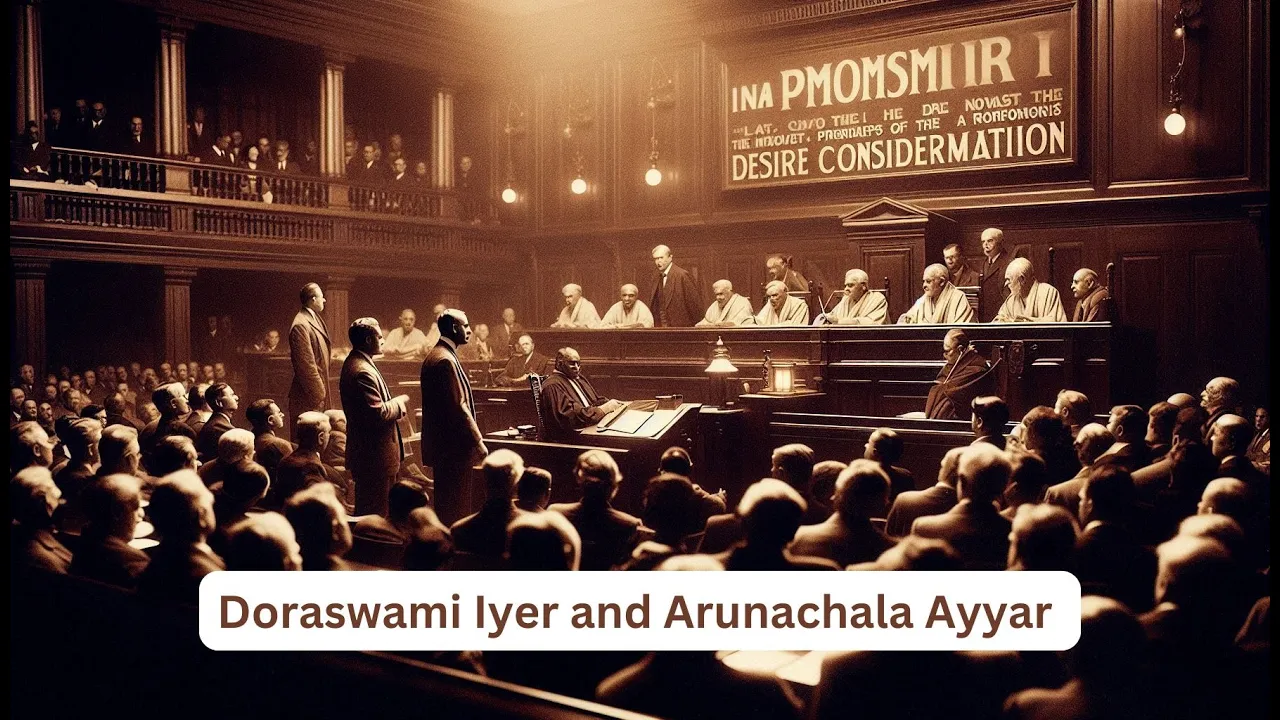

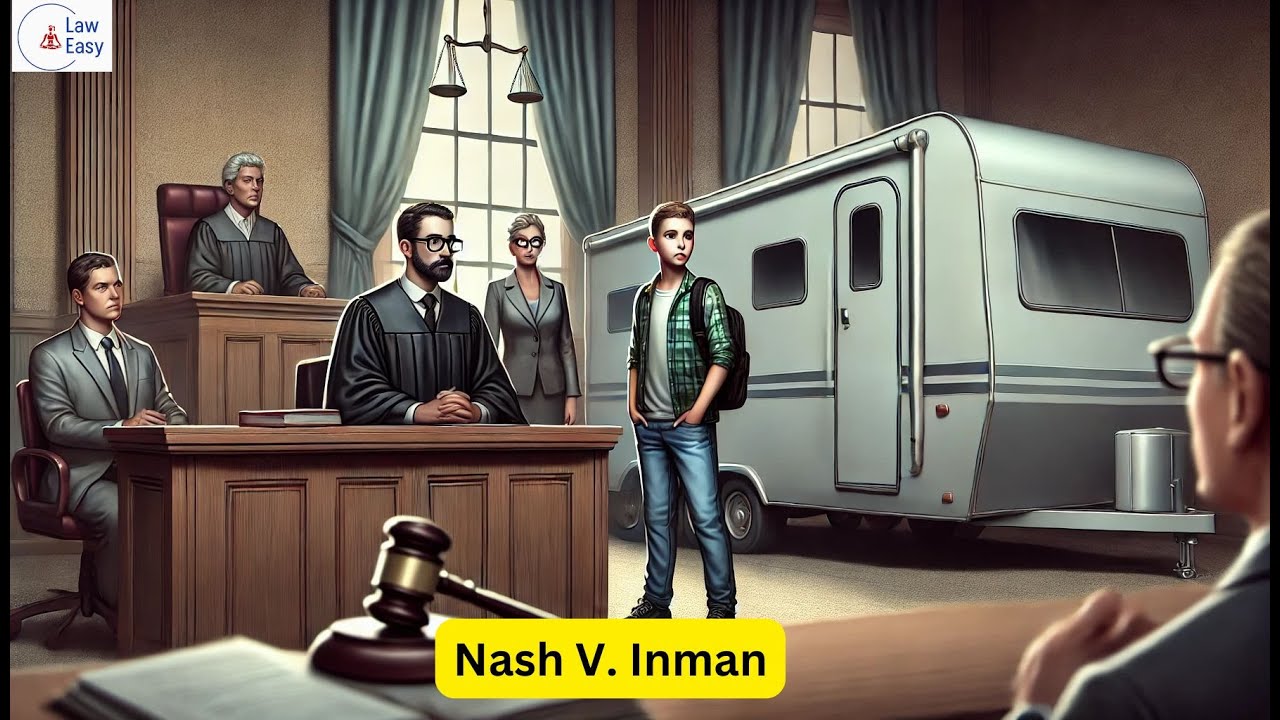
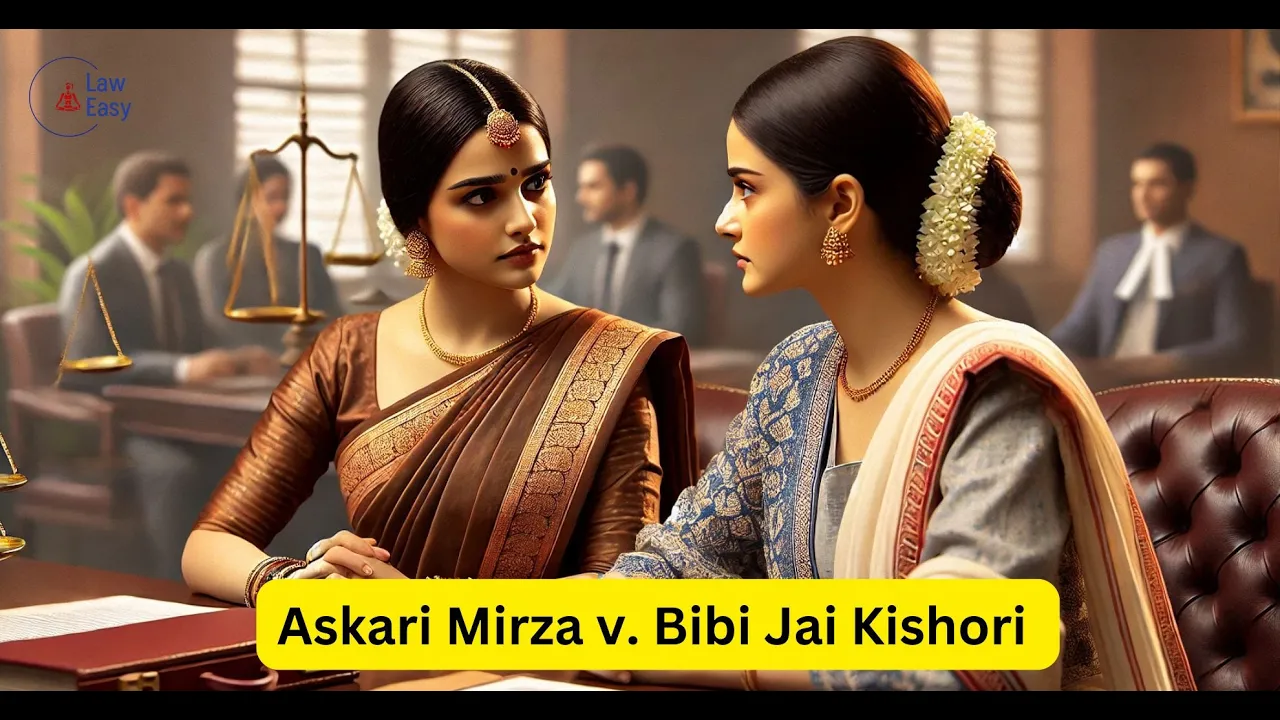
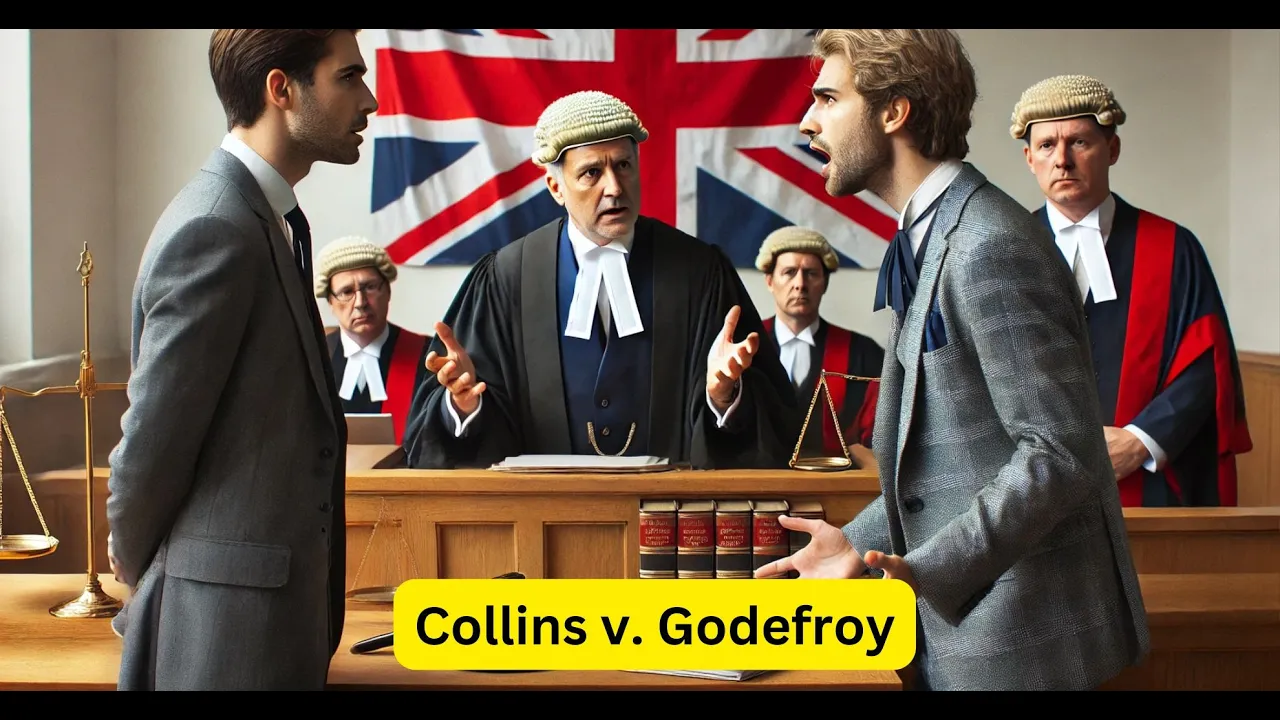
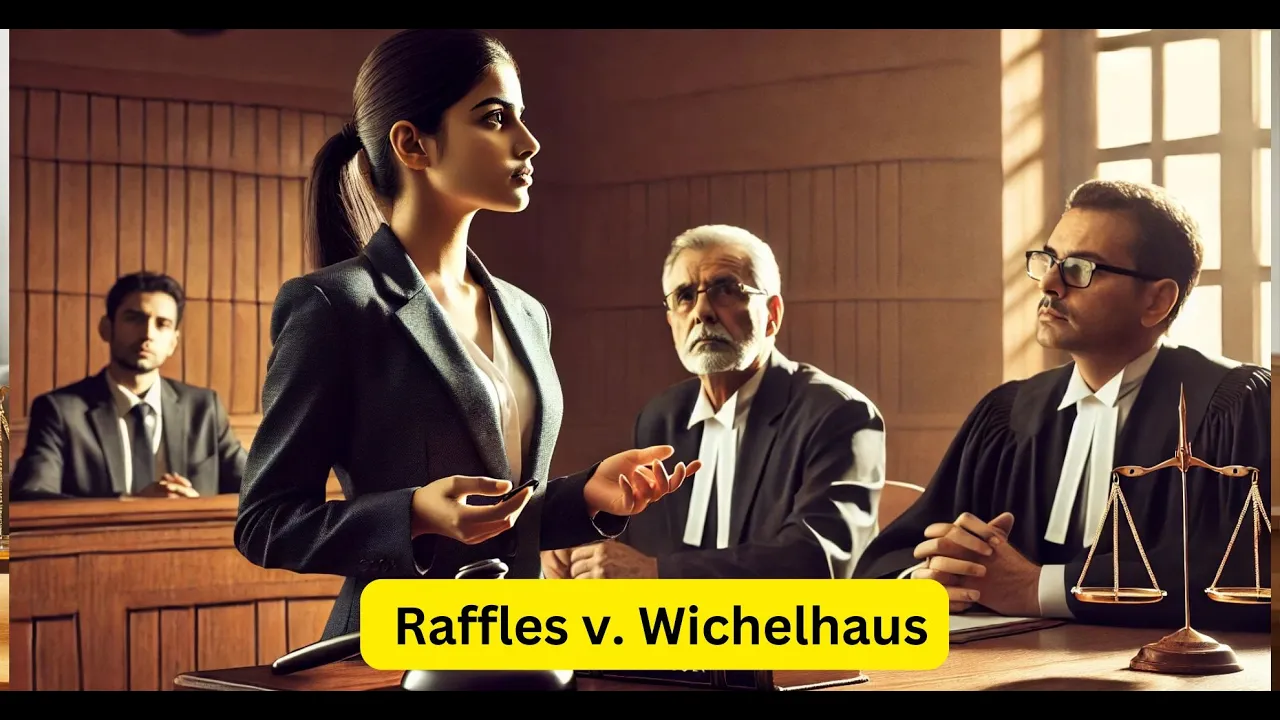
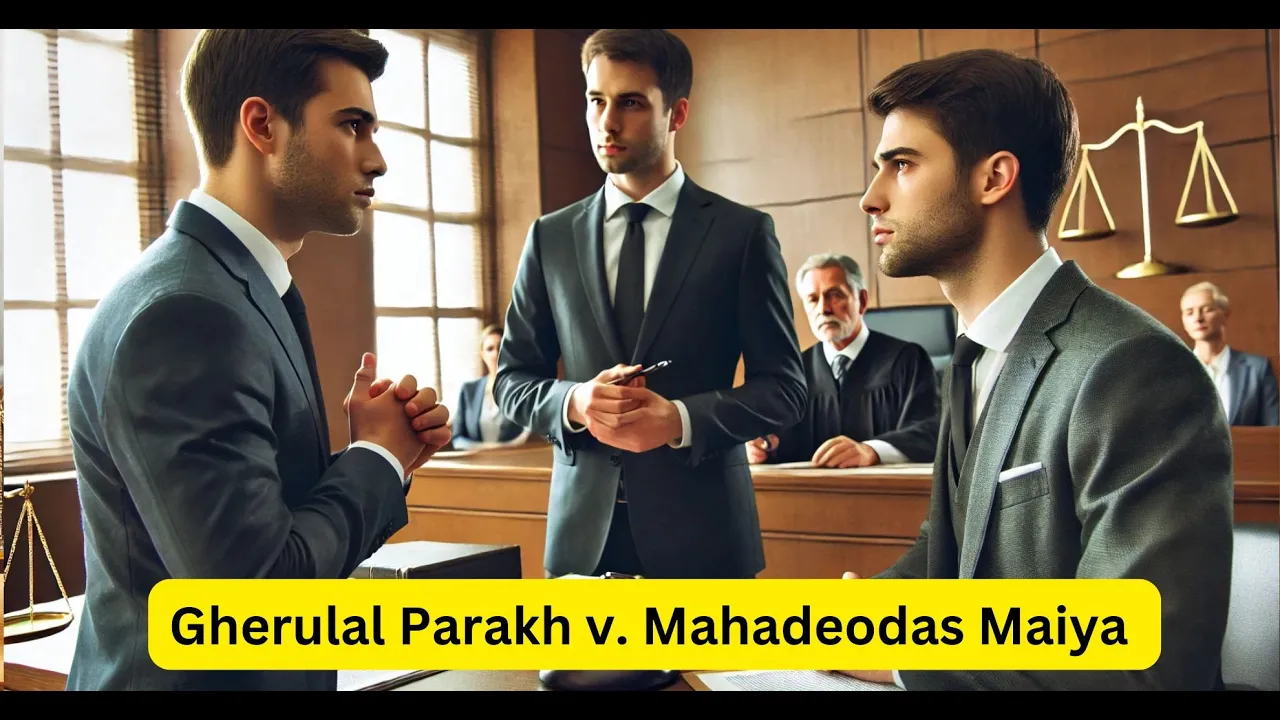
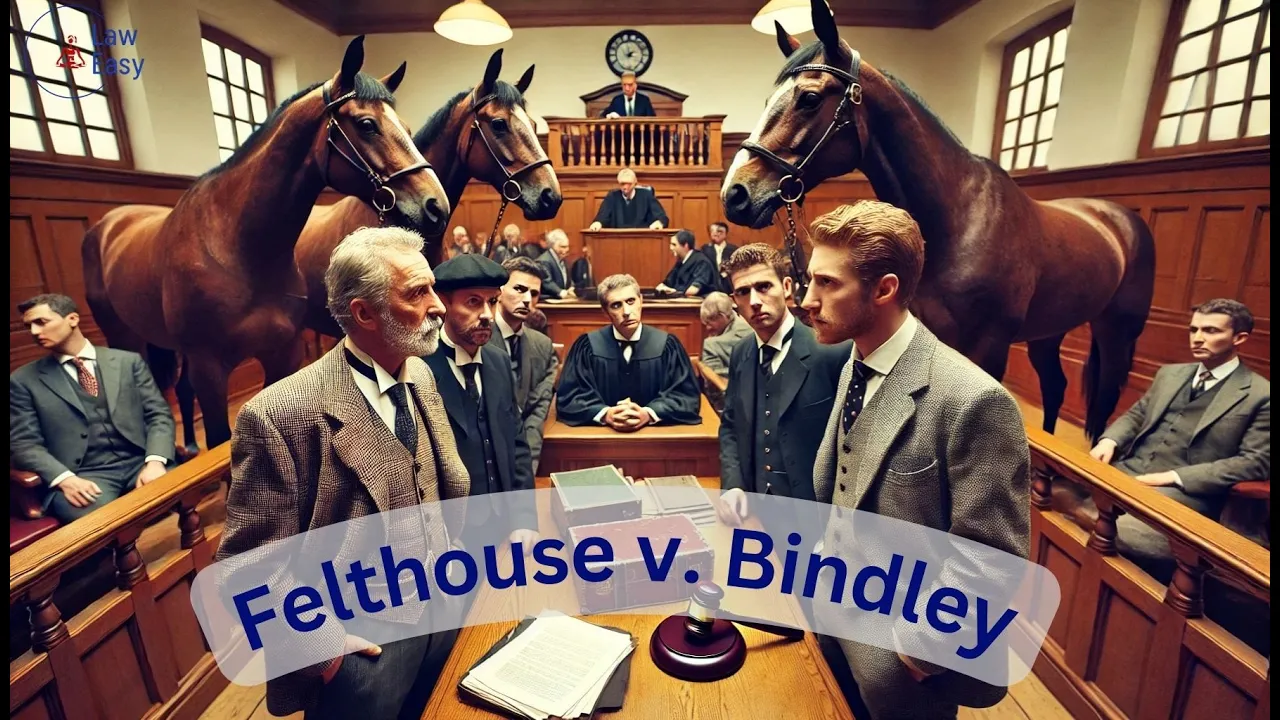
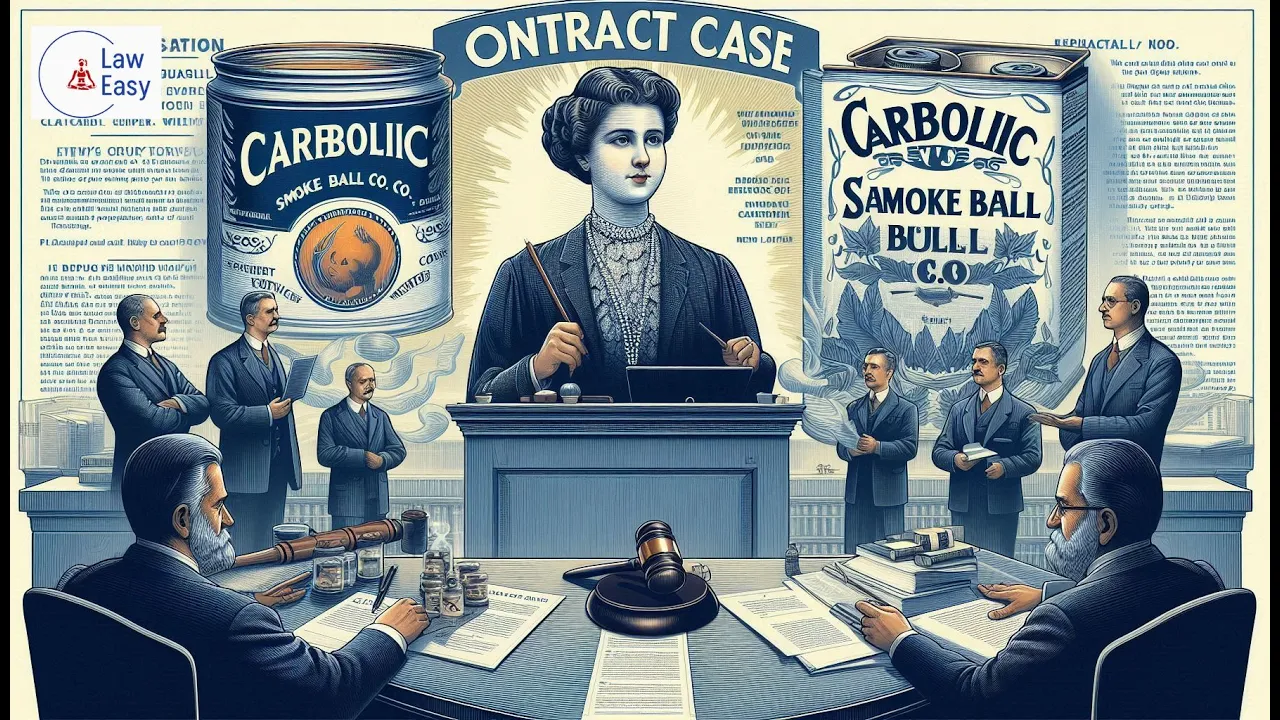
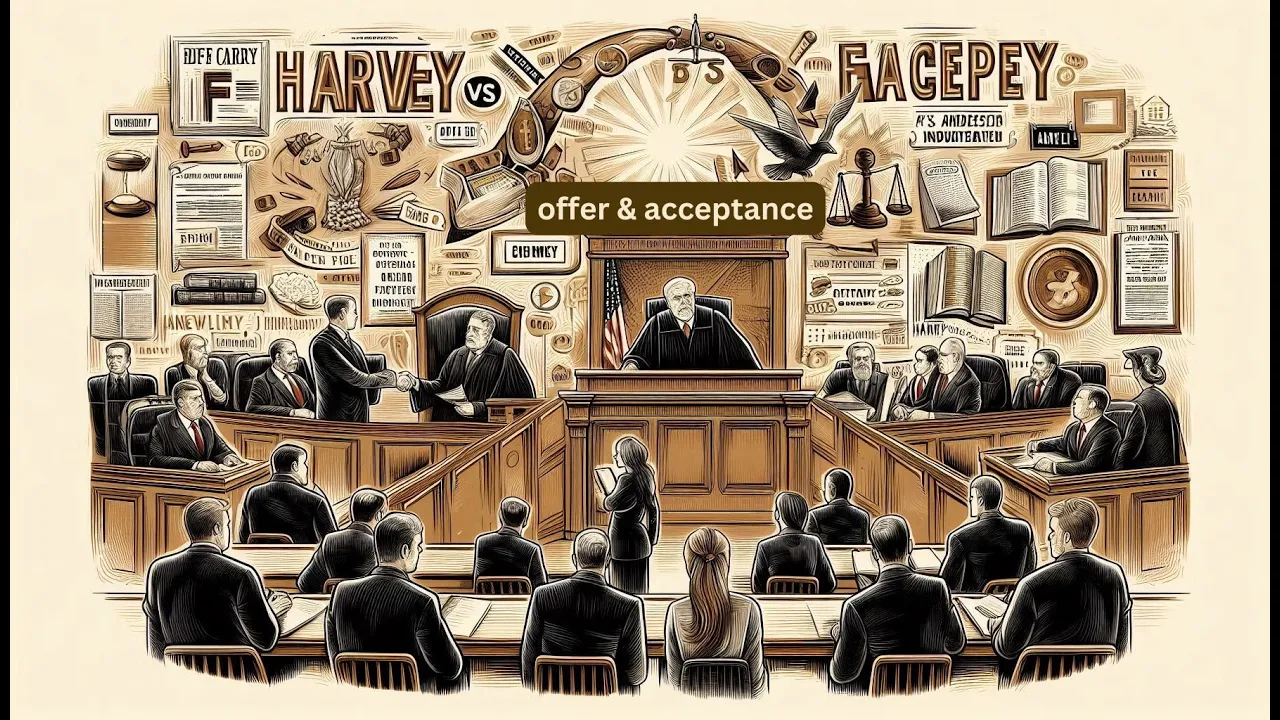






































































































Comment
Nothing for now